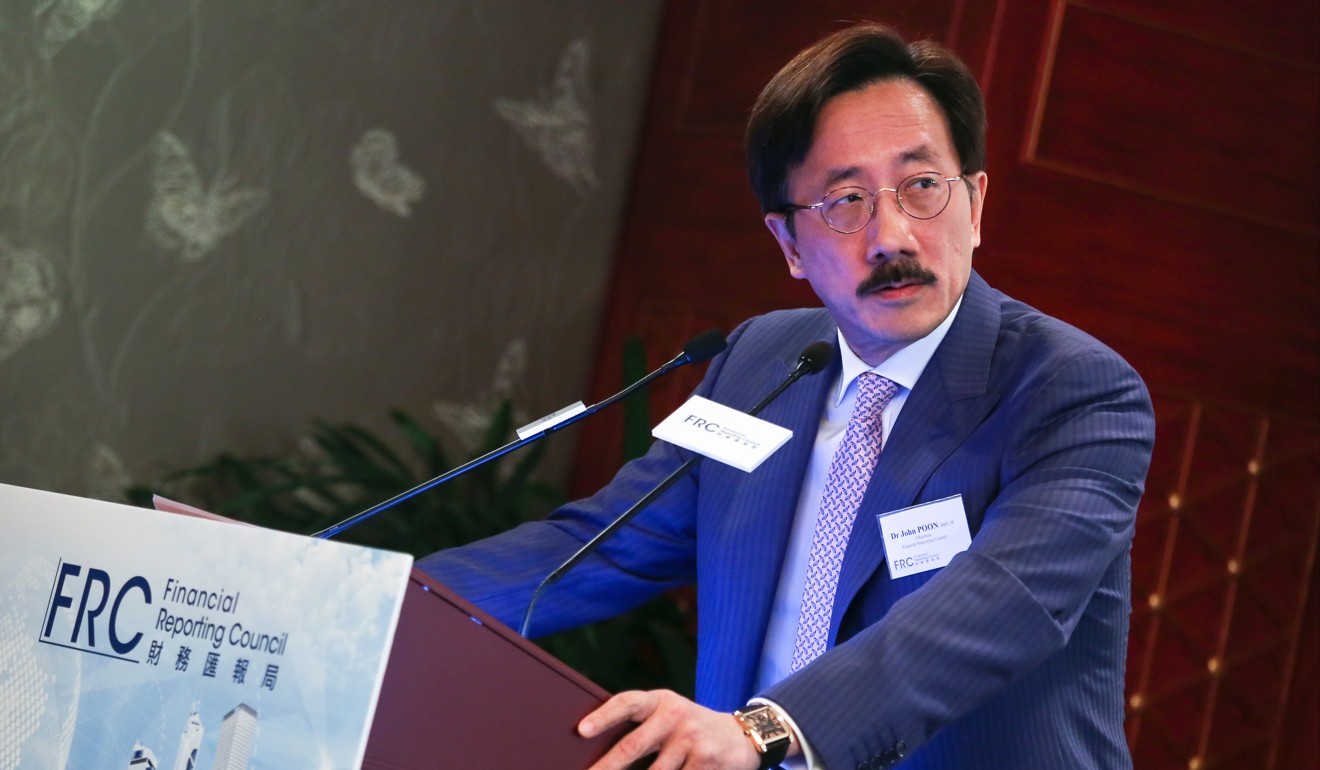
With an eye on global technology IPOs, Hong Kong kicks off its biggest auditor reform in decade
Financial Reporting Council to have authority to check auditors in more than 2,000 listed companies
The Hong Kong government has kicked off the city’s biggest auditing regulatory reform in a decade, with the aim of positioning Hong Kong as a hub for technology initial public offerings.
Under the Financial Reporting Council (Amendment) Bill 2018, which the government gazetted on Friday and is to be presented before lawmakers on Wednesday, the Financial Reporting Council will be empowered to inspect, investigate, as well as discipline auditors in more than 2,000 listed companies.
The council will take over these additional powers from the industry body, the Hong Kong Institute of Certified Public Accountants. When the council was set up by the government in 2007 it only handled investigations, while other regulatory functions were carried out by the institute. Under the reform, the institute loses all regulatory powers over auditors of listed companies to the council.
“The Bill will enhance the existing regulatory regime for auditors of listed entities, allowing them to be independent from the audit profession, thereby providing better protection to investors. This is crucial to strengthening Hong Kong’s status as an international financial centre and capital market,” said James Lau, the secretary for financial services and the treasury.
“Benchmarking against international standards and practice, the new regime will also enable Hong Kong to be eligible for joining the International Forum of Independent Audit Regulators, which is an important forum for international cooperation on the regulation of auditors,” he said.
The auditor regulatory reform comes at the same time as Hong Kong Exchanges and Clearing, which operates the city’s bourse – the third largest in Asia – is also carrying out its largest reform in three decades, to allow dual-class shareholding companies and large biotech firms without revenue to list as Hong Kong competes with the United States for more technology listings.

Both moves are aimed at improving the quality of Hong Kong’s stock markets as the city attempts to attract more giant technology companies to list and more mainland firms to trade here.
Hong Kong has lagged behind other financial centres such as New York, London and Singapore because of a lack of an independent auditing regulator. This is also why the city lost out to Singapore in the Corporate Governance Watch 2016 rankings in September.
“The introduction of this legislation is in the best interest of the investing public. This much-awaited reform for auditors of publicly listed entities, i.e. from self-regulation to independent oversight, will bring Hong Kong’s auditor regulatory regime in line with other major capital markets worldwide, such as New York and London. It will further entrench Hong Kong’s status and reputation as a robust international financial centre,” said John Poon, the council’s chairman.
This is crucial to strengthening Hong Kong’s status as an international financial centre and capital market
The Hong Kong Institute of Certified Public Accountants, however, raised a number of concerns on Friday.
“On funding, HKICPA feels the proposed HK$90 million annual budget, a three-fold increase [from current levels], requires further substantiation. Judging from our own experience in regulation, inspection and discipline, the figure seems very high,” the institute said, adding that the government needed to be more forthcoming and transparent about funding, so that everybody knew their respective contributions were reasonable and fair.
“A number of our member firms continue to have concerns over the maximum penalty of HK$10 million, which they believe will impose an undue financial burden on smaller firms. Last, but not least, it is not clear how non-Hong Kong auditors will be regulated.”
The institute said it would keep on pursuing these issues during the legislative process.

